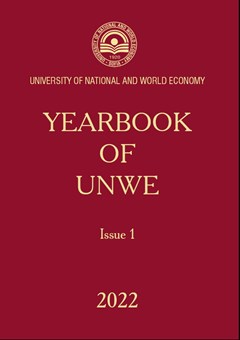Higher Education for Interdisciplinary Education in Sustainable Development
Author: Tilcho Ivanov
Abstract
The commitments of higher education (HE) and in particular universities with regard to the creation of conditions to implement a strategy and pursue a policy for training and research in the field of sustainable development (SD) has critical relevance for the country's future. The continuous lifelong education of students and adults is the prime engine for the establishment of a civil culture, whereby the care for the environment is integrated with the social and economic aspects of social life. The academic community is in need of support by the business, the local and central administration and the legislative branch with a view to applying education models that go beyond the narrow discipline-oriented training that has been implemented so far. Multidisciplinary integration to achieve a balanced and innovative ecological, social, economic and administrative education and research should be taken up and implemented, given that it is a necessary condition for the provision of a sustainable and safe social development. The aim of this paper is to expose the current commitments taken on by the universities in the country regarding the training of specialists in SD, as well as to identify the opportunities to tackle the challenges they involve.
JEL: I25, A12

